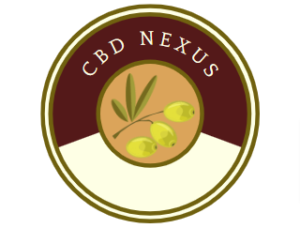THC edibles have rapidly grown in popularity as a preferred method of consuming cannabis. These tasty treats offer an alternative to smoking or vaping and provide a discreet, convenient, and often longer-lasting way to experience the effects of THC, the psychoactive compound found in cannabis. Whether you’re new to cannabis or a seasoned user, understanding THC Edibles is essential for a safe and enjoyable experience.
What Are THC Edibles?
THC edibles are food products infused with tetrahydrocannabinol (THC), the primary psychoactive component in cannabis. They come in many forms, including gummies, chocolates, baked goods, beverages, and even savory snacks. Unlike smoking or vaping, where THC enters the bloodstream quickly through the lungs, edibles must be digested first, which alters how the body processes THC and changes the onset and duration of effects.
How Do THC Edibles Work?
When you consume a THC edible, the THC travels through your digestive system and is metabolized by the liver before entering the bloodstream. This process converts THC into 11-hydroxy-THC, a compound that crosses the blood-brain barrier more efficiently and can produce a stronger and more prolonged psychoactive effect.
Because of this metabolic pathway, the effects of THC edibles usually take longer to kick in—anywhere from 30 minutes to 2 hours after ingestion. However, once they start, the effects can last between 4 to 12 hours, depending on factors like dosage, metabolism, and tolerance.
Benefits of THC Edibles
-
Discreet Consumption: Edibles look like regular food, allowing users to consume cannabis without drawing attention or producing smoke or vapor.
-
Longer-Lasting Effects: Edibles provide a sustained high that can be ideal for those seeking extended relief or recreational use.
-
No Respiratory Impact: Since edibles are ingested, they don’t affect the lungs or throat like smoking or vaping might.
-
Precise Dosing: Commercially produced edibles often come with clear labeling of THC content, making it easier for users to control their dosage.
Potential Risks and Side Effects
Despite their benefits, THC edibles also carry risks that users should be aware of:
-
Delayed Onset Leads to Overconsumption: Because effects take longer to appear, inexperienced users may consume too much before feeling anything, leading to an uncomfortable or intense experience.
-
Stronger Effects: The metabolite 11-hydroxy-THC can produce a more potent effect than inhaled THC, which might overwhelm some users.
-
Variable Potency: Homemade or unregulated edibles might have inconsistent THC levels, increasing the risk of accidental overconsumption.
-
Impaired Judgment: Like all forms of cannabis, edibles can impair motor skills, reaction times, and judgment, making activities such as driving dangerous.
-
Health Considerations: People with certain medical conditions or those taking medications should consult a healthcare provider before using THC edibles.
How to Use THC Edibles Safely
To enjoy THC edibles safely, follow these tips:
-
Start Low, Go Slow: Begin with a low dose, typically around 2.5 to 5 mg of THC, especially if you’re new or have a low tolerance. Wait at least 2 hours before considering more.
-
Read Labels Carefully: Pay attention to THC content and serving size to avoid accidental overconsumption.
-
Choose Reputable Sources: Purchase edibles from licensed dispensaries or trusted producers to ensure product quality and accurate dosing.
-
Avoid Mixing with Alcohol: Combining edibles with alcohol can intensify effects and increase the risk of adverse reactions.
-
Store Safely: Keep edibles out of reach of children and pets, as their appearance and taste can be enticing to them.
Popular Types of THC Edibles
The market offers a wide variety of THC edibles catering to different tastes and preferences:
-
Gummies: One of the most popular forms, gummies are easy to dose, portable, and available in many flavors.
-
Chocolate: THC-infused chocolate bars or bites provide a rich treat for cannabis users.
-
Baked Goods: Brownies, cookies, and other pastries have long been classic cannabis edibles.
-
Beverages: Cannabis-infused drinks like teas, sodas, and even coffee offer a refreshing alternative.
-
Savory Snacks: Chips, nuts, and popcorn infused with THC are growing in popularity for those who prefer savory over sweet.
The Legal Landscape
The legality of THC edibles varies widely depending on location. In some places, recreational and medicinal cannabis, including edibles, are fully legal and regulated. In others, cannabis remains illegal or limited to medical use only. It is crucial to understand the laws in your area before purchasing or consuming THC edibles.
Conclusion
THC edibles offer a unique and enjoyable way to experience cannabis with benefits like discretion, longer-lasting effects, and no respiratory impact. However, due to their delayed onset and potent effects, caution is key. Starting with a low dose, purchasing from reputable sources, and being mindful of local laws can help ensure a safe and pleasant experience. Whether for medicinal relief or recreational use, THC edibles continue to shape the evolving landscape of cannabis consumption.
